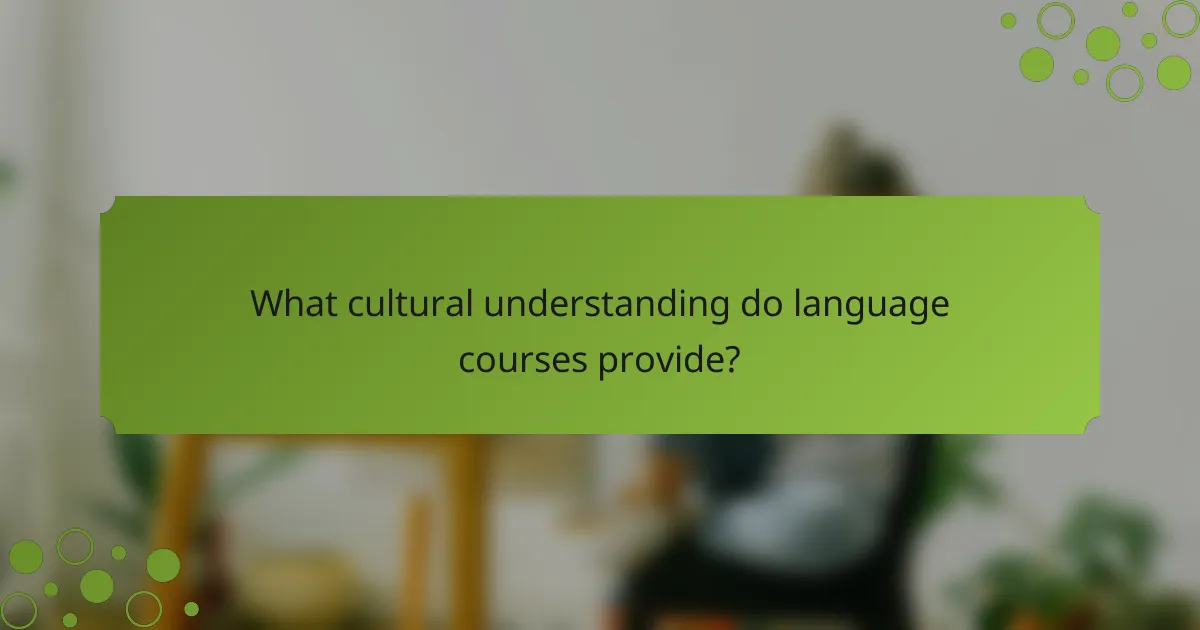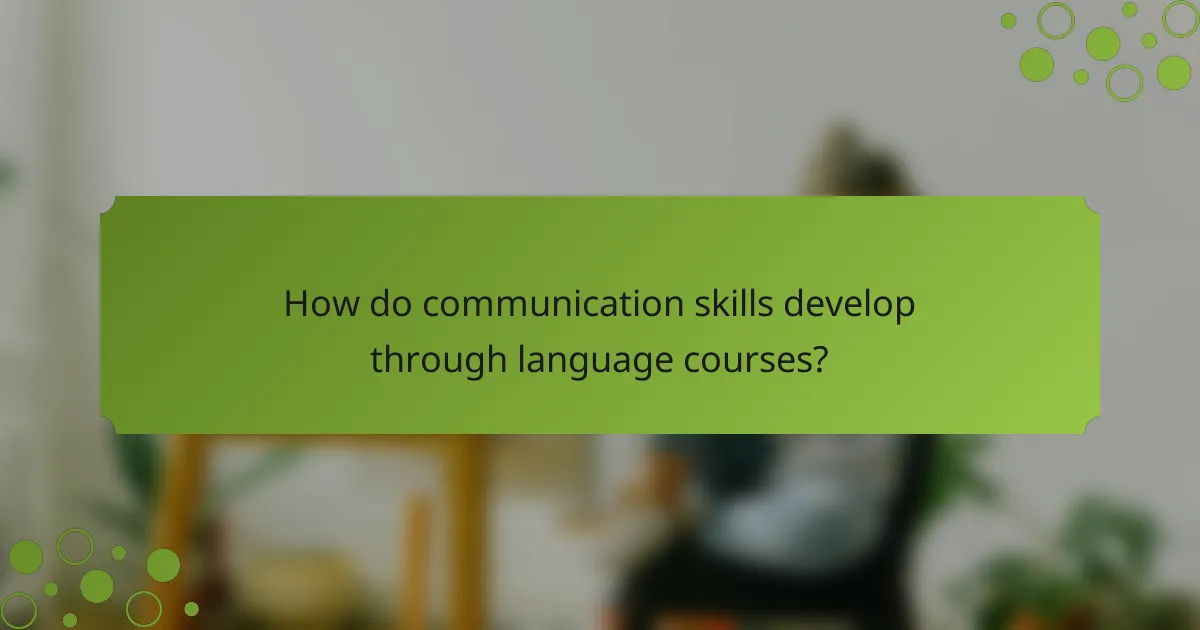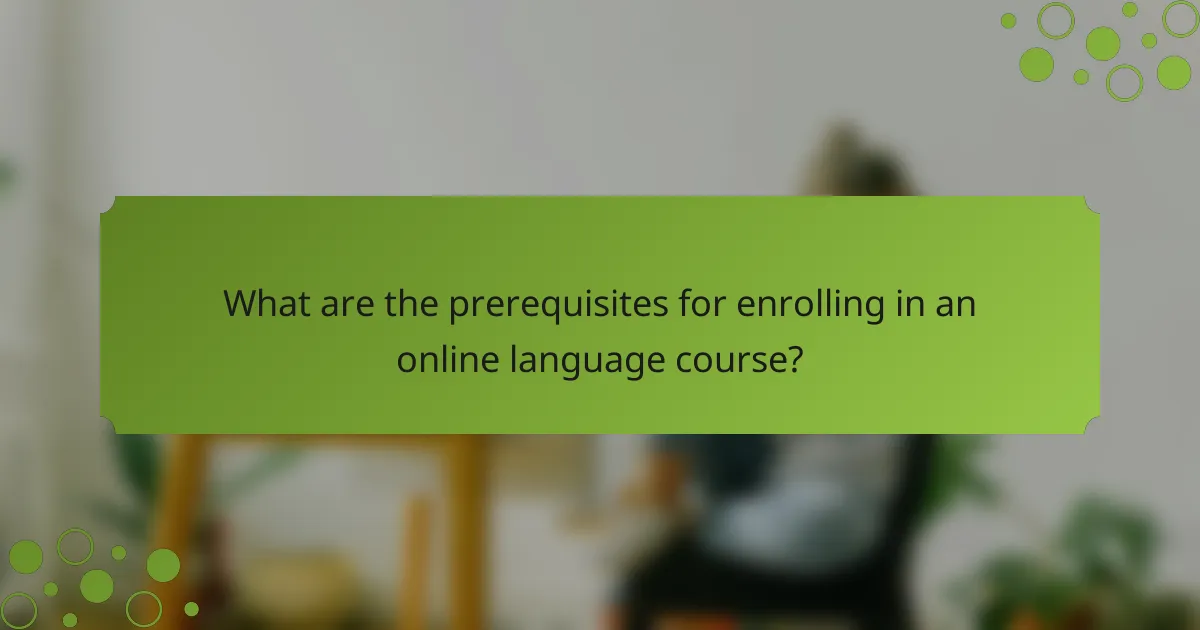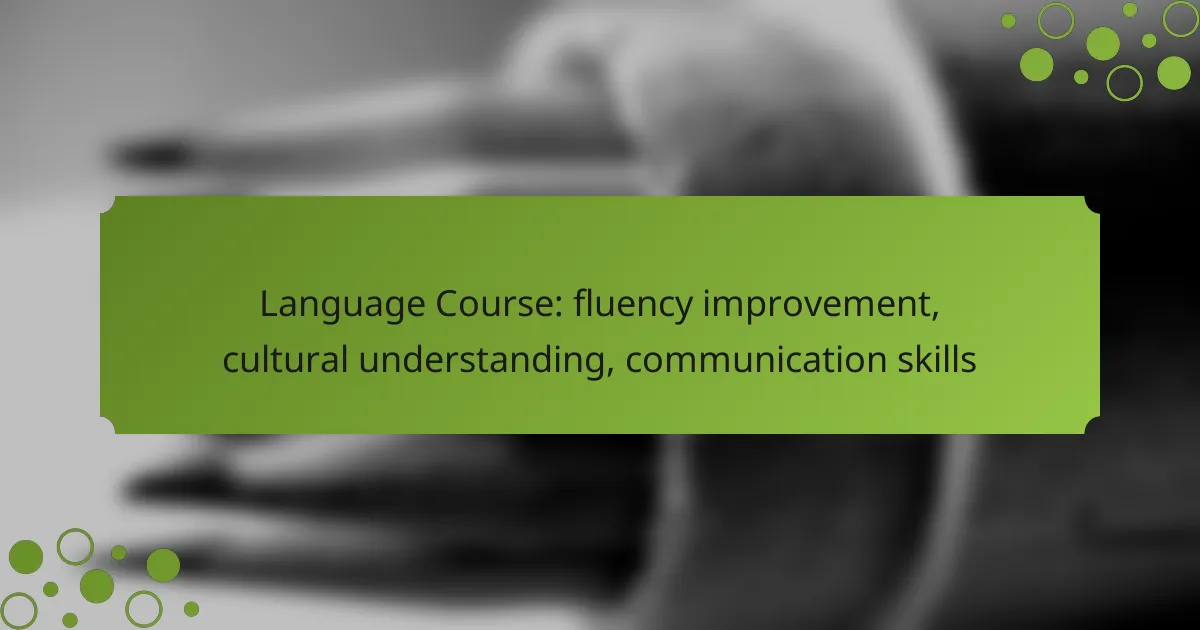Enhancing your English fluency through online courses can provide you with structured learning and interactive tools that connect you with native speakers. These courses not only improve your language skills but also deepen your cultural understanding, allowing you to navigate social norms and values effectively. By focusing on practical communication, you will gain the confidence to express your ideas clearly and fluently in real-world situations.

How can online courses improve English fluency in Canada?
Online courses can significantly enhance English fluency in Canada by providing structured learning environments, interactive tools, and access to native speakers. These courses often focus on practical language use, cultural nuances, and effective communication skills, which are essential for fluency.
Interactive speaking exercises
Interactive speaking exercises are a key component of online English courses, allowing learners to practice pronunciation and conversation skills in real-time. These exercises often include role-playing scenarios, discussions, and pronunciation drills that mimic everyday conversations.
For example, platforms may use video conferencing tools to facilitate live discussions, enabling students to engage with peers and instructors. This immediate interaction helps reinforce language learning and builds confidence in speaking.
Personalized feedback from instructors
Receiving personalized feedback from instructors is crucial for improving language skills. In online courses, instructors can provide tailored advice based on individual performance, helping students identify areas for improvement.
Feedback can include specific suggestions on grammar, vocabulary usage, and pronunciation. This targeted guidance allows learners to make focused progress, ensuring they develop their fluency effectively.
Real-world conversation practice
Real-world conversation practice is essential for achieving fluency in English. Many online courses incorporate opportunities for students to engage in conversations with native speakers, either through language exchange programs or community forums.
These interactions expose learners to authentic language use and cultural contexts, enhancing their understanding and ability to communicate effectively. Regular practice in real-life situations helps solidify language skills and boosts overall confidence in speaking.

What cultural understanding do language courses provide?
Language courses enhance cultural understanding by immersing learners in the social norms, values, and practices of the language’s native speakers. This exposure helps students navigate cultural nuances, improving their communication skills and fluency in real-world contexts.
Insights into Canadian customs
Language courses focused on Canadian English often include lessons on local customs, such as politeness norms and regional holidays. Understanding these customs can help learners engage more effectively with Canadians, whether in casual conversations or formal settings.
For example, Canadians typically value politeness and may use phrases like “sorry” frequently, even in minor situations. Recognizing this cultural trait can help learners adapt their communication style to fit in better.
Exposure to diverse English dialects
Language courses can introduce students to various English dialects, including Canadian, British, and American English. Each dialect has unique vocabulary, pronunciation, and idiomatic expressions, which can enrich a learner’s understanding and fluency.
For instance, a word like “boot” refers to a trunk in British English but means footwear in American English. Being aware of these differences can prevent misunderstandings and enhance overall communication skills.

How do communication skills develop through language courses?
Communication skills improve significantly through language courses by providing structured learning and practical application. These courses focus on enhancing fluency, cultural understanding, and the ability to convey ideas effectively in a new language.
Structured grammar lessons
Structured grammar lessons form the backbone of language courses, helping learners grasp the rules that govern sentence construction. Understanding grammar allows students to form coherent sentences, which is essential for effective communication.
Typically, these lessons cover various aspects such as verb tenses, sentence structure, and punctuation. For instance, a course might focus on the past tense for a week, allowing students to practice speaking and writing about past events accurately.
To maximize learning, students should actively engage with exercises and seek feedback. Regular practice can lead to noticeable improvements in clarity and confidence when communicating.
Role-playing scenarios
Role-playing scenarios are an effective method for enhancing communication skills in a practical context. These activities simulate real-life situations, allowing learners to practice language use in a safe environment.
For example, students might role-play a restaurant scenario where they order food, ask questions, and interact with a waiter. This not only builds vocabulary but also fosters cultural understanding by exposing learners to social norms and etiquette relevant to the language.
To make the most of role-playing, participants should embrace creativity and spontaneity. Engaging fully in these scenarios can significantly boost confidence and fluency in real-world conversations.

What are the prerequisites for enrolling in an online language course?
To enroll in an online language course, you typically need a basic understanding of the language you wish to learn, as well as access to a computer and a reliable internet connection. These prerequisites ensure that you can fully engage with the course materials and participate in interactive learning activities.
Basic English knowledge required
Most online language courses expect students to have a foundational level of English knowledge, as course instructions and materials are often presented in English. This means you should be comfortable with basic vocabulary and grammar to navigate the course effectively.
If you are a non-native English speaker, consider taking a preliminary English course or using language learning apps to build your skills before enrolling. This preparation can enhance your overall learning experience and comprehension of the new language.
Access to a computer and internet
Having access to a computer and a stable internet connection is essential for participating in online language courses. Most courses involve video lectures, interactive exercises, and live discussions, all of which require reliable technology.
Ensure your computer meets the minimum system requirements for the course platform, which may include specific operating systems or software. A high-speed internet connection is also recommended to avoid interruptions during live sessions or when accessing multimedia content.

Which platforms offer the best online English courses in Canada?
Several platforms provide high-quality online English courses in Canada, catering to different learning styles and goals. Popular options include Coursera, Udemy, and Rosetta Stone, each offering unique features and course structures to enhance fluency, cultural understanding, and communication skills.
Coursera
Coursera partners with top universities and organizations to offer comprehensive English courses. These courses often include video lectures, interactive quizzes, and peer-reviewed assignments, allowing learners to engage deeply with the material.
Consider courses like “English for Career Development” or “Improving Communication Skills,” which focus on practical language use in professional settings. Many courses are available for free, but obtaining a certificate typically requires a fee ranging from CAD 50 to CAD 200.
Udemy
Udemy features a wide array of English courses tailored to various skill levels, from beginner to advanced. Instructors create courses that often include video content, downloadable resources, and quizzes to reinforce learning.
Prices on Udemy vary significantly, with many courses available for under CAD 50 during sales. Look for courses with high ratings and reviews to ensure quality, and check for lifetime access to the content for ongoing practice.
Rosetta Stone
Rosetta Stone is renowned for its immersive language learning approach, focusing on visual and auditory cues to teach English. The platform emphasizes speaking and listening skills, making it ideal for learners who want to improve their conversational abilities.
Subscription plans typically range from CAD 15 to CAD 20 per month, depending on the length of commitment. Rosetta Stone also offers a money-back guarantee, allowing learners to try the program risk-free for a limited time.

What factors should you consider when choosing a language course?
When selecting a language course, consider factors such as course content, instructor qualifications, and student feedback. These elements significantly influence your learning experience and overall fluency improvement.
Course content relevance
The relevance of course content to your goals is crucial. Look for programs that focus on practical language skills, cultural understanding, and communication techniques that align with your needs, whether for travel, work, or personal enrichment.
Check if the curriculum includes immersive activities, real-life scenarios, and cultural insights. For example, a course designed for business professionals should emphasize industry-specific vocabulary and communication strategies.
Instructor qualifications
Instructor qualifications can greatly impact the effectiveness of your learning. Ensure that the teachers are fluent in the language and have relevant teaching experience, preferably with a background in linguistics or education.
Additionally, consider instructors who are native speakers, as they can provide authentic cultural context and nuances. Look for certifications or degrees in language education as indicators of their expertise.
Student reviews and ratings
Student reviews and ratings offer valuable insights into the course’s effectiveness. Check online platforms for feedback on the course structure, teaching style, and overall satisfaction from past participants.
Look for consistent themes in reviews, such as the course’s ability to improve fluency or enhance cultural understanding. A course with a high rating and positive testimonials is often a safer choice for prospective students.

How much do online English courses cost in Canada?
Online English courses in Canada typically range from a few hundred to over a thousand Canadian dollars, depending on the course’s length, intensity, and provider. Factors such as accreditation, course materials, and additional support services can also influence the overall cost.
Average course price range
The average price for online English courses in Canada generally falls between CAD 200 and CAD 1,500. Basic courses focusing on conversational skills may cost less, while comprehensive programs that include advanced grammar and writing skills tend to be on the higher end of the spectrum.
When selecting a course, consider what is included in the price. Some programs offer personalized tutoring, interactive materials, and cultural immersion experiences, which can justify higher costs. Look for courses that provide a clear outline of what you will learn and the resources available.
It’s also wise to compare different providers. Some institutions may offer discounts for early registration or package deals for multiple courses. Always check for reviews and testimonials to ensure you are getting value for your investment.



